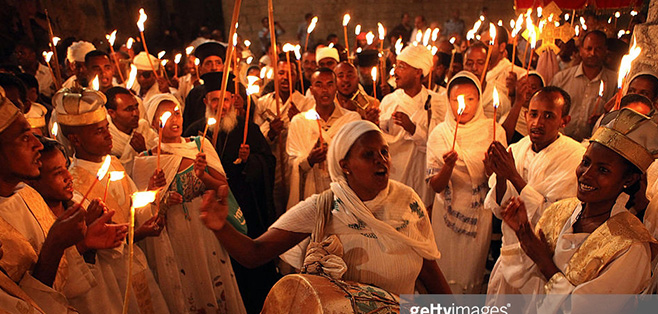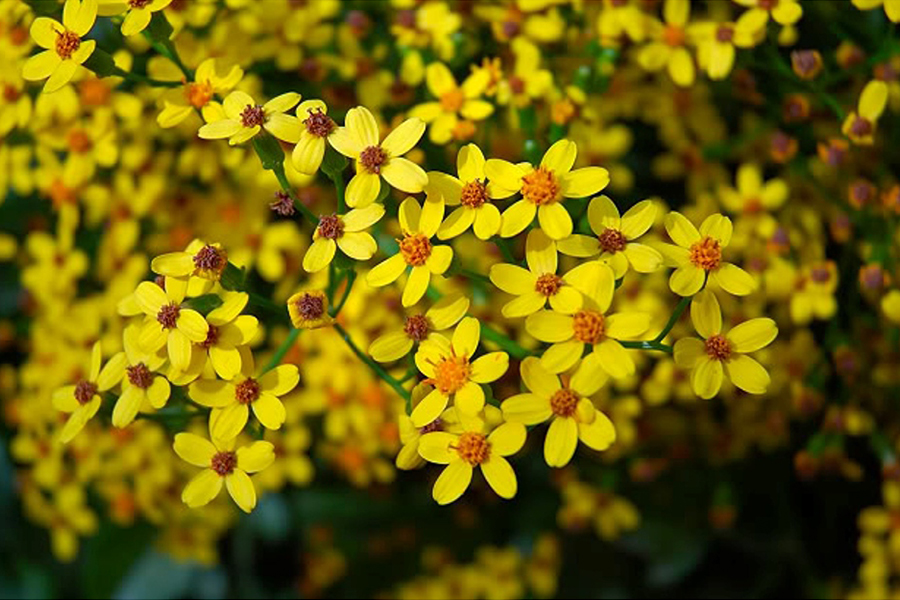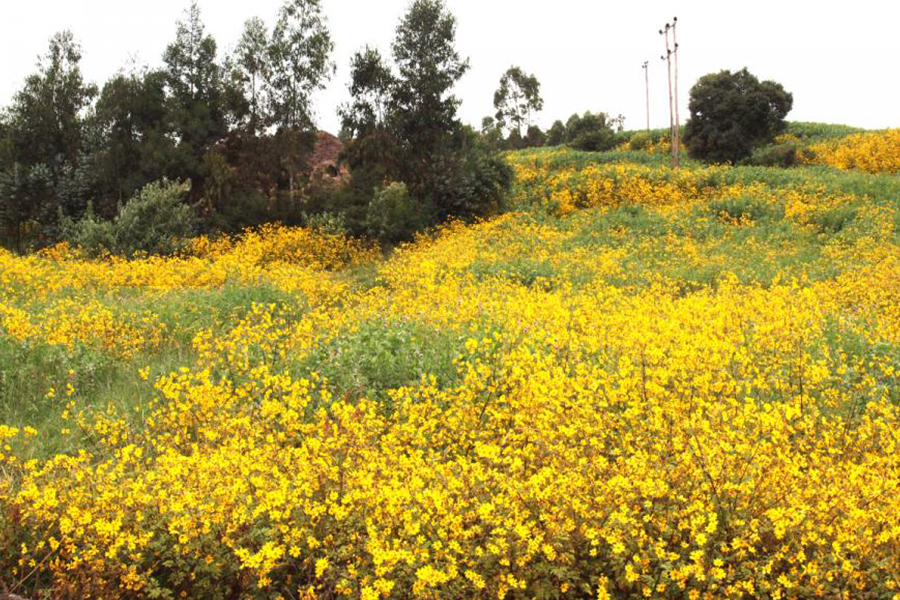Ethiopian New Year
While the Gregorian calendar is followed in most parts of the world, Ethiopians religiously adhered to the Coptic calendar which is similar to the Julian calendar. Usually at the end of the big rains, the sun arises to create a dazzling atmosphere of clear skies and clean fresh air to usher in a new beginning. This day marks the first day of the month of Mäskäräm which is celebrated as New Year day in Ethiopia.
This New Year day known as Enkutatash falls on September 11th on the Gregorian calendar and it also coincides with the Feast of St. John the Baptist. According to legend, the celebration of Enkutatash dates back to the return of the Queen of Sheba from her visit to King Solomon. The word ‘Enkutatash’ means gift of jewels. On the arrival of the queen from her sojourn to Solomon’s courts in the land of Israel, her chiefs welcomed her by replenishing her treasury with enku – jewels.
On the eve, torches of dry wood is often burned in front of houses, while prayers and hymns are sung to usher in the New Year. Sermons, prayers, Psalms and hymns, and colorful processions are hallmarks of the 3-day celebration in several places throughout the country. Young children put on new clothes and dance around the villages, giving out bouquets of flowers to households, while large feasts are hosted by families and friends.
Celebration is usually grand and spectacular in the Gondar region, especially at the 14th century church, Kostete Yohannes. In Addis Ababa, the most colorful celebration of the festival takes place at the Raguel Church on Entoto Mountains. Among urban people, ‘Happy New Year’ messages and greeting cards have taken the place of the traditional bouquet of flowers, as they celebrate springtime and a renewal of life. So next time you think of September 11th, remember that it is not all gloomy and a sad reminder of a mindless act. Instead, celebrate the renewal of life and a Happy New Year with the Ethiopians!
SELECTED PACKAGE
30 November -0001
5 Days Danakil Depression
30 November -0001
5 Days Trek In Bale Mountains
30 November -0001
8 Days Timkat Fastival
30 November -0001
28 Days Complete Ethiopia
CUSTOMIZED AND TAILOR-MADE TOUR PACKAGES
BACK TO THE ORIGIN








